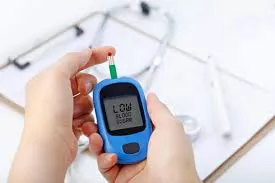Hypoglycemia, or low blood glucose, is a condition that can occur in individuals with diabetes or other metabolic disorders. It is characterized by an abnormally low level of glucose in the blood, which can lead to symptoms ranging from mild discomfort to severe complications. Prompt and effective treatment of hypoglycemia is crucial to prevent adverse effects and maintain overall health. This article provides a detailed guide on how to treat hypoglycemia quickly and effectively.
Understanding Hypoglycemia
Definition and Symptoms
Hypoglycemia is defined as a blood glucose level below 70 mg/dL (3.9 mmol/L). Symptoms can vary based on the severity and can include:
Mild Symptoms: Shakiness, sweating, irritability, rapid heartbeat, hunger.
Moderate Symptoms: Confusion, dizziness, difficulty concentrating, weakness.
Severe Symptoms: Seizures, loss of consciousness, inability to eat or drink.
Recognizing these symptoms early is key to preventing severe hypoglycemic episodes.
Causes of Hypoglycemia
Hypoglycemia can be caused by various factors, including:
Medication: Overuse of insulin or other glucose-lowering medications.
Dietary Factors: Skipping meals, inadequate carbohydrate intake, or alcohol consumption.
Physical Activity: Intense or prolonged exercise can increase the risk of hypoglycemia.
Health Conditions: Certain medical conditions and hormonal imbalances can affect blood glucose levels.
Immediate Treatment for Hypoglycemia
Quick-Acting Carbohydrates
The primary treatment for hypoglycemia involves consuming quick-acting carbohydrates to rapidly raise blood glucose levels. Recommended options include:
Glucose Tablets: These are specifically designed to provide a fast and precise dose of glucose. Follow the instructions on the packaging for the correct dosage.
Fruit Juice: 4 ounces (120 mL) of orange juice or apple juice can effectively raise blood glucose levels.
Regular Soft Drinks: Non-diet sodas, such as cola, can be used in emergencies. Consume about 6-8 ounces (180-240 mL).
Honey or Syrup: 1-2 tablespoons of honey or syrup can be used as an alternative source of glucose.
Avoiding Foods with High Fat Content
While foods like chocolate or candy bars contain sugar, they also have high-fat content that can slow down glucose absorption. It is advisable to avoid these during an acute hypoglycemic episode.
Monitoring Blood Glucose Levels
Checking Blood Glucose
After consuming quick-acting carbohydrates, it is essential to recheck blood glucose levels to ensure they have risen to a safe range. Use a glucose meter to monitor levels approximately 15 minutes after treatment.
Repeat Treatment if Necessary
If symptoms persist or blood glucose levels remain low, repeat the treatment with another dose of quick-acting carbohydrates. Continue to monitor and treat as needed until blood glucose levels stabilize.
Long-Term Management and Prevention
Adjusting Medication
Insulin Doses: Review insulin doses with a healthcare provider to ensure they are appropriately matched to dietary intake and activity levels.
Medication Timing: Adjust timing of medication based on meal times and exercise routines.
Meal Planning and Carbohydrate Intake
Regular Meals: Eat regular meals and snacks throughout the day to maintain stable blood glucose levels.
Balanced Diet: Include a balance of carbohydrates, proteins, and fats in meals to prevent drastic blood glucose fluctuations.
Exercise Considerations
Monitor Blood Glucose: Check blood glucose levels before, during, and after exercise to prevent hypoglycemia.
Carry Quick Carbs: Always carry a source of quick-acting carbohydrates when engaging in physical activities.
Emergency Situations
Severe Hypoglycemia
Glucagon Injection: In cases where an individual is unconscious or unable to swallow, a glucagon injection can be administered. Glucagon is a hormone that raises blood glucose levels and should be used according to the instructions provided by a healthcare professional.
Medical Assistance: Seek immediate medical help if glucagon is administered or if the person does not respond to treatment.
Hospitalization
Intravenous Glucose: In a medical setting, intravenous glucose may be administered for rapid correction of severe hypoglycemia.
Monitoring: Continuous monitoring and supportive care may be required to address underlying causes and prevent recurrence.
Education and Training
Patient Education
Recognizing Symptoms: Educate individuals and caregivers on how to recognize early symptoms of hypoglycemia.
Treatment Protocols: Provide clear instructions on how to treat hypoglycemia quickly and effectively.
Emergency Preparedness
Emergency Kits: Assemble an emergency kit with glucose tablets, a glucose meter, and a glucagon kit if prescribed.
Emergency Contacts: Ensure that emergency contacts and medical professionals are aware of the individual’s condition and treatment plan.
Lifestyle and Behavioral Strategies
Maintaining a Healthy Lifestyle
Balanced Diet: Adhere to a balanced diet with appropriate carbohydrate intake to maintain stable blood glucose levels.
Regular Exercise: Engage in regular physical activity while monitoring blood glucose levels to prevent hypoglycemia.
Stress Management
Stress Reduction: Manage stress through relaxation techniques, such as meditation or yoga, to prevent stress-related fluctuations in blood glucose levels.
Support Systems: Utilize support systems, including healthcare providers and support groups, for guidance and motivation.
Psychological and Social Considerations
Impact on Daily Life
Emotional Effects: Address the emotional impact of living with a chronic condition and experiencing hypoglycemic episodes. Counseling or support groups may be beneficial.
Social Interactions: Educate family, friends, and colleagues about hypoglycemia and how they can assist in emergency situations.
Quality of Life
Improving Well-being: Focus on strategies to improve overall quality of life, including maintaining a positive outlook and engaging in enjoyable activities.
Research and Advancements
Ongoing Research
New Treatments: Stay informed about ongoing research and advancements in the treatment and management of hypoglycemia.
Technological Innovations: Explore new technologies, such as continuous glucose monitoring systems and insulin pumps, which can help manage blood glucose levels more effectively.
See also: Is Hypoglycemia a Symptom of Type 2 Diabetes?
Conclusion
Treating hypoglycemia promptly and effectively is crucial for preventing serious complications and maintaining overall health. By understanding the causes and symptoms of hypoglycemia, utilizing quick-acting carbohydrates, and implementing long-term management strategies, individuals can better manage their blood glucose levels and reduce the risk of hypoglycemic episodes. Education, preparedness, and ongoing support play key roles in successful treatment and prevention. Regular consultation with healthcare professionals and staying informed about new advancements can further enhance the management of hypoglycemia.
Related topics:
What Happens During Hypoglycemia?

























